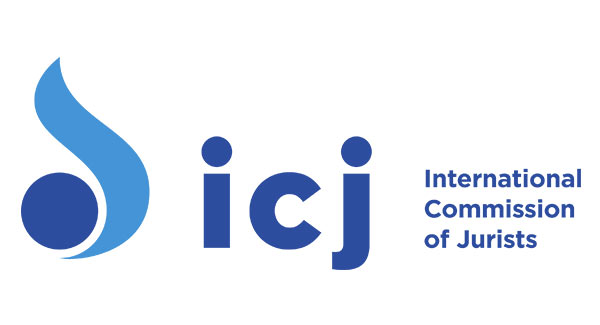ICJ deeply concerned by President Sirisena’s resolve to resume executions in Sri Lanka

The International Commission of Jurists (ICJ) has called on Sri Lanka’s President, Maithripala Sirisena, to retract his recent pronouncement that executions would resume in the country notwithstanding a moratorium on capital punishment that has lasted 43 years. The last execution was carried out in Sri Lanka in 1976.
“Resuming executions would be an egregious violation of Sri Lanka’s obligations under international human rights law, a serious threat to human rights in the country, and it would be inconsistent with the global trend towards the abolition of the death penalty,” said Frederick Rawski, ICJ’s Asia-Pacific Director.
Speaking in Parliament last week, President Sirisena vowed to resume executions of those convicted of “drug offences” as early as within the next two months.
The ICJ considers any resumption of executions in Sri Lanka as constituting a violation of international law and an appalling disregard for the international human rights system as a whole.
“At least 150 countries have now either abolished the death penalty or instituted an official or unofficial moratorium. There is a growing understanding around the world that the death penalty is an unacceptable assault on rights and dignity,” Fredrick Rawski added.
The ICJ opposes the death penalty in all circumstances – as it constitutes a violation of the right to life and its imposition constitutes per se cruel, inhuman, or degrading punishment.
The Human Rights Committee, the Treaty Body supervising the implementation of the International Covenant on Civil and Political Rights (ICCPR), by which Sri Lanka is bound, has recently made clear in its General Comment 36 on Right to life that, “it is contrary to the object and purpose of Article 6 [of the ICCPR, which enshrines the right to life] for States parties to take steps to increase de facto the rate and extent in which they resort to the death penalty”, and that, “States parties that are not yet totally abolitionist should be on an irrevocable path towards complete eradication of the death penalty, de facto and de jure, in the foreseeable future. The death penalty cannot be reconciled with full respect for the right to life, and abolition of the death penalty is both desirable and necessary for the enhancement of human dignity and progressive development of human rights.”
Moreover, the UN Human Rights Committee has made it clear that the imposition of the death penalty for “drug offenses” is incompatible with the Covenant.
The UN General Assembly has adopted repeated resolutions, most recently in December 2018, by overwhelming majority in calling for all retentionist States to observe a an immediate moratorium with a view to abolition.
It must be noted that Sri Lanka voted in favor of a moratorium on the use of the death penalty in the 2018 UN GA Resolution. This commitment should not be reversed, but upheld in practice instead, the ICJ says.
The ICJ calls on the Government of Sri Lanka to reject the resumption of executions and to do away with the death penalty once and for all. Instead of planning on resuming executions, the Sri Lankan authorities should focus on effective, evidence-based approaches to crime prevention in manners that conform to international human rights law and standards, such as formulating policies and legislation that address the underlying social and economic causes of criminality, which are also vital to ensuring stability and the rule of law.
The ICJ also urges Sri Lanka to immediately ratify the 2nd Optional Protocol to the International Covenant on Civil and Political Rights, which obligates State Parties to take all necessary measures to abolish the death penalty.
(Source: ICJ.org)

Latest Headlines in Sri Lanka
- COPE uncovers irregular NMRA certification process March 14, 2025
- Anuradhapura Hospital Director removed following doctor’s assault March 14, 2025
- Popular rapper Shan Putha arrested with firearm March 14, 2025
- Batalanda commission report tabled in Sri Lankan Parliament March 14, 2025
- Female Grama Niladharis withdraw from night duty over security concerns March 14, 2025



Punishment for crimes committed should be a deterrent and degree of deterrent should fit the crime in order to prevent such criminal activities. Sri was once upon the hub narcotic trade and dates back to the 1950’s . Evidence for this could be found archived in the United Nations publications. However this did not affect the sri lankan population then as now
Most crimes commted in sri lanka is drug related the most henious of which the abduction of children to prostitution. The network is so vast that the government has failed to maintain a statistic. The omlu solution to this is a hard line and weed out the hard core criminal elements including members of parliament and even the judiciary that lends itself to corruption through moniey genered in the narcotic trade.
I know little of the Madush who found a safe haven in the middle east not because of being arrested by the system but to escape from being murdered by fellow criminals.
This mans arrest is not the end to the solution for the narcotic trade continues unabated and Madush is only a part of the problem and most likley he must have already been replaced!
The only solution is what Duarte has implement neutralise without trial sounds crazy but that is the only way. When LTTE was running a killing spree that was considered a legitimate political process of self determination! The estimated death total from Tiger operation was estimated between 40 to 50000 and what did the CJI stand for then
The punishment may be the deterrent; but all Drug Dealers have the patronage of politicians, law enforcers, judiciary and public servants.
We can behead Drug Dealers but the patrons consisting politicians, law enforcers, judiciary and public servants will quickly replace them.